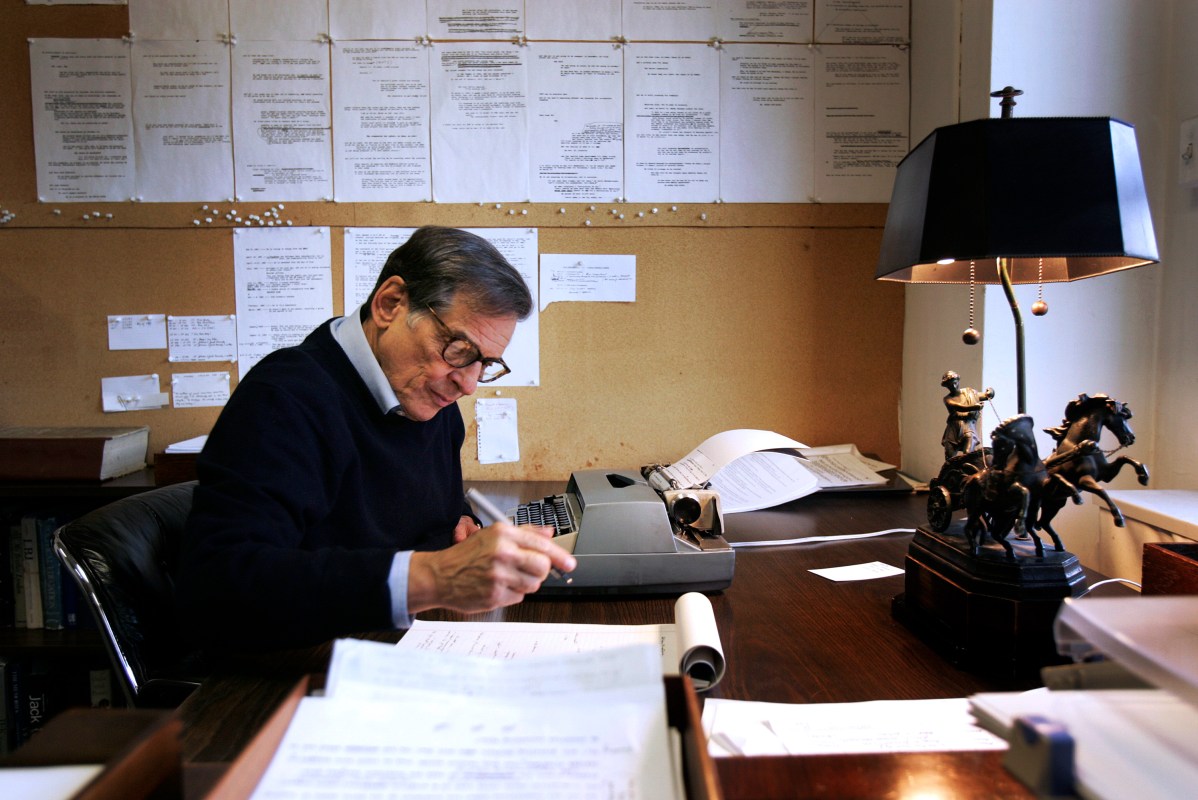Toni Morrison and Joan Didion occupy the top of some very sacred American literary ground. Morrison is the only living American to win the Nobel Prize in Literature, making her the representation of all that can be truly great about American fiction; Didion, who has written some fine novels herself, is probably the nonfiction writer I’d say nine out of ten young essayists emulate, even though some people aren’t as convinced of her greatness.
If there’s some sort of literary holy trinity, Morrison and Didion make up two-thirds of it; Robert Caro, the greatest living American biographer, makes the trio complete. And now, with his new book, Working, the famously slow-moving writer is telling the story of how he approaches his work. And unlike previous Caro books that could serve as great door stops, Working is relatively short. But as we learn, size truly doesn’t matter. While the book is about Caro’s craft, its lessons will serve just about anybody.
Take your time
Caro is 83, and up until Working came out, you could count the number of books he had published on one hand. But he swears it’s not because he’s slow. “I am constantly being asked why it takes me so long, and when I say that I’m actually a very fast writer, people can barely contain their disbelief and amusement.”
The truth is that Caro is a rarity in this day and age: he isn’t consumed with being prolific or churning out content. Instead, as he documents throughout Working, he just takes his time because he wants to get everything right. He’s a meticulous researcher, and proof that if you want to create something of lasting value, you should take your time on it.
Get obsessed with something
“From the very start I thought of writing biographies as a means of illuminating the times of the men I was writing about and the great forces that molded those times — particularly the force that is political power.”
While the bulk of Working is based on his experiences writing about the two larger-than-life figures that have made up the bulk of his work, it also shines a light on Caro’s unique obsession with power, namely who has it, how they yield it and how it impacts other people.
“Political power shapes all of our lives,” writes Caro. And he’s right. Turn on the news, get involved in local politics, or watch an episode of a fictional TV show from Game of Thrones to Billions and how political power is really at the heart of every struggle. Through his decades of researching, writing and simply thinking so much about political power, Caro might be one of the leading experts you’ll find anywhere. There’s a lesson there: find something that consumes you and try to understand it. You don’t necessarily have to write huge books about the subject, but a little obsession with a topic can actually be healthy (in moderation, of course.)
Look at the larger picture
“The more I thought about Robert Moses’ career,” Caro writes at one point, “the more I realized that his story and the story of New York City were, to a remarkable degree, one story.”
That’s really what makes Caro so great at what he does: he doesn’t just write biographies; he writes commentaries disguised as biographies. If you’re going to tackle a project or create something, really think about why you’re doing it. The care will shine through.
Get dressed for work
Caro doesn’t share many sartorial tips in Working, but in a 2012 article for the New York Times Magazine, he shared that when he goes to work in his little private office in Manhattan, he always puts on a jacket and tie. It doesn’t matter if he’ll see anybody or not; the guy gets dressed for work. Maybe if you’re feeling uninspired at your job, the first step is to look at what you’re wearing.
The art of the interview
“Interviews: silence is the weapon, silence and people’s need to fill it—as long as the person isn’t you, the interviewer,” Caro writes. Stay silent for a few seconds and think about that.
This article was featured in the InsideHook newsletter. Sign up now.
























